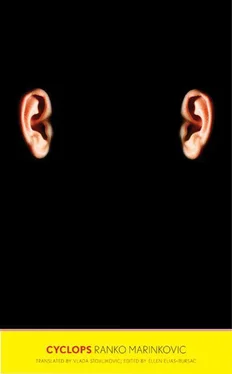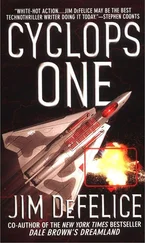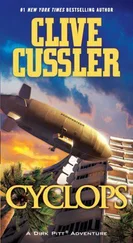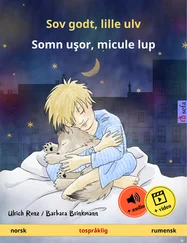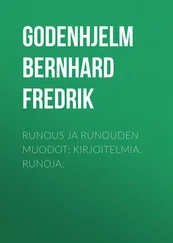“See? He knows it all!” exclaimed Ugo in buffoonish rapture, as if he were offering a parrot for sale. “Please, Maestro, what’s the title of that poem by Captain Lebyakin? You’ll see, he knows that, too.”
“I can’t say,” Maestro smiled slyly. The unexpected reply left a palpable impression on his party. Ugo was stumped.
“I can’t say,” Maestro went on after an effective pause, “because Lebyakin has several poems. I’m sure you mean ‘The Cockroach.’”
“But of course, ‘The Cockroach’!” cried Ugo delightedly. “The Cockroach, the cockroach, ha-ha, I told you he knew! How could he not know about the cockroach, he, the Mad Bug—”
“Inspired!” Maestro corrected him.
“Ah yes, inspired, the Inspired Bug! Of course he knew, the cockroach is an animal, is it not? I would also have you know, gentlemen, that he, too, has written a number of poems. They are not about animals, they’re sort of inspired, melancholico-anatomical, ‘snip-snap.’ May we have Snap , Maestro, please? There may be a few disbelievers in our midst, so let them hear it! Here, Don Fernando’s smiling skeptically as if to say, ‘He a poet?’ Why, it’s something right up your alley, Don Fernando, it’s humane and all that. … So, Maestro: Snap , if you please.”
“I am not smiling,” muttered Don Fernando, blushing horribly, because everyone was looking at him as if he were to blame.
Indeed, he was not smiling. He had hardly been listening to Ugo’s silly patter (or at least so it seemed), but nevertheless his expression smiled all the while, and it seemed to be smiling all on its own while he, preoccupied with his thoughts, was unaware of what it was up to.
He had sat there all evening with that derisive smile on, never deigning to say a word; he was watching everything from some distracted, wise height.
Moreover, the self-important smile never left Don Fernando’s face. It was, in a way, central to his physiognomy. Ugo said he put the smile on in the morning, in front of the mirror, and then went out, wearing it all day and taking it off only in bed to put it under his pillow before going to sleep. Who knew what lay hidden behind the mask? Revenge against mankind perhaps … or some small advance on a great future triumph?
Don Fernando wrote in the same way, wearing his inscrutable smile. A critic had written that he flogged his characters with nettles and tickled them to insanity. There truly was a sadistic side to his writing: he invented people to torture them. But the torture was by no means cruel or painful. On the contrary, the characters laughed and rejoiced, but they laughed like madmen and were bathed in the cold sweat of dismay, as if the author were flogging them into merriment.
“No, I’m really not smiling,” said Don Fernando almost angrily, feeling the reproachful glances of the entire company on his person. “What have you gone silent for? Please proceed, Maestro.”
“Oh no, no way,” grumbled Maestro in a hurt voice, “I can’t do this in front of Europe. The scornful face of the most exquisite taste is standing over my piggish talent and smirking. The talent may be piggish, but the pride is not, Monsieur le GoÛt!” He gave Don Fernando a sharp, almost menacing look.
“No, Maestro,” interceded Melkior, in a placating tone, “he really is not smiling. It’s just his face.”
Don Fernando lashed Melkior with a quick scornful glance, but, as if afraid of being caught out, he immediately diluted it with the saintly mercy that he had gushed tonight from his bright eyes all over the Give’nTake.
The Give’nTake did not very often have the honor of being caressed by Don Fernando’s eyes. It was a house of drink-sodden madcap living, of devil-may-care and mindless time-wasting, whereas he was a serious and responsible man. He worked, he wrote, he thought. No, by no means did he belong here, and it was a mystery why he came at all. It was where the Parampions performed their lunatic “shows,” while he, sensible and sober like a gracious Sun, would spare a ray of attention to throw some light on the silly muddle, and then put its lights out again and, in full blackout, sail away into unreachability.
Don Fernando was simply impregnable. How hard had Ugo tried to disarm the man and subject him to the power of his “eloquence,” to topple him from the throne of indifferent and silent derision, to bring him into line and make him one of “the boys”! Don Fernando would immediately surrender, lay down his arms, put his hands up, even insist that there was nothing special about him, nothing unusual, he was an ordinary man, perhaps even … well, an inferior man; all the same he remained alien and aloof which was after all what he wanted to be and seemed to relish.
The silence had become oppressive, as though everyone were waiting for something to happen. Even Ugo was wordless. Or was he purposely letting seriousness kill the fun, rob the jollity, so that he might come on in “grand style” to save the day.
He was a past master at handling such situations.
Melkior felt the worst. Whence the guilty feeling? It seemed to him that all eyes were trained on him in a kind of expectation as if he could come up with a solution. What had he gone and tampered with Don Fernando’s ineffable divinity for? It had soared frighteningly high above his pedestrian powers, and he had long been cultivating the patient policy of the believer who envies the omnipotence of his God. But into the envy crept some insidious antipathy that he unconsciously sought to disperse with a strange readiness to sacrifice himself. And every time he caught himself preparing for the sacrifice, even as the inferior feeling of fulsome humility was hatching, there also emerged anger and disgust along the way, with himself along with everything else. Whence the slimy feeling of crawling mendacity which clung faithfully to the superior and hated person? Step forward, any who are immune to that particular brand of perfidy! Oh, human nature! sighed Melkior “from deep down inside,” cleverly impersonating his conscience, as if he had deftly used “human nature” to plug a stench-spewing bottle.
“I suggest,” Chicory Hasdrubalson spoke up mournfully, mid-silence, “that the entire Parampionic Fraternity humbly ask the great Don Fernando to adopt a sad mask suitable for a pompe funèbres director , following which we should equally humbly ask the immortal Maestro to carry the remains of the dear departed out of the house of sorrow so that we might fittingly mourn it as one.”
They interrupted him with a chorus of laughter (which included Maestro’s angry grunts). Ugo amply rewarded Chicory with kisses on behalf of the entire fraternity … and things got going nicely again after the standstill. But silence descended suddenly again like darkness and choked the barely revived merriment.
Something was happening on Don Fernando’s face and it instantly affected everyone, as if sunspots had appeared and brought about an abrupt climate change. Indeed, dark spots had appeared on both Don Fernando’s ruddy cheeks and a grim cloud of anger flew across his eyes. True, he whisked the cloud right away so that no lightning flashed in his eyes, but the spots spread on his cheeks, covering them to the ears.
There was a solar eclipse. A devout silence fell upon the party at the table and mystic anxiety swept through the entire Give’nTake. Doomsday was expected. But in the midst of expectation Maestro finished his glass while Ugo grinned derisively at the darkened sun — Don Fernando’s face — intrepidly displaying his black fillings.
Was it the fillings themselves or the heretic defiance of the two chief Parampions that upset the exalted balance of Don Fernando’s divine serenity? He snatched his glass greedily as if about to drain it, held it tightly gripped in his hand for a moment (he was trying against all odds to resist temptation), and then with an easy swing, but producing an extremely telling effect, dashed the wine across the table smack into Ugo’s teeth. He then stood up without looking at anyone and strode unhurriedly out of the Give’nTake.
Читать дальше
